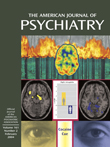Long-Term Lithium Therapy for Bipolar Disorder: Systematic Review and Meta-Analysis of Randomized Controlled Trials
Abstract
OBJECTIVE: The authors sought to determine the efficacy and acceptability of lithium for relapse prevention in bipolar disorder. METHOD: A systematic review and meta-analysis of randomized controlled trials comparing lithium with placebo in the long-term treatment of bipolar disorders was conducted. Data were obtained from searching the registers of the Cochrane Collaboration; reviewing reference lists, journals, and conference abstracts; and contacting authors, experts, and pharmaceutical companies. Outcomes investigated included risk of relapse (manic, depressive, and total) as well as risk of specific adverse effects and total withdrawal rates. RESULTS: Five randomized controlled trials (770 participants) were included. Lithium was more effective than placebo in preventing all relapses (random effects relative risk=0.65, 95% CI=0.50 to 0.84) and manic relapses (relative risk=0.62, 95% CI=0.40 to 0.95). The protective effect of lithium on depressive relapses was smaller and was less robust (relative risk=0.72, 95% CI=0.49 to 1.07). CONCLUSIONS: Lithium treatment reduces the risk of relapse in bipolar disorder. The preventive effect is clear for manic episodes, although it is equivocal for depressive episodes.



